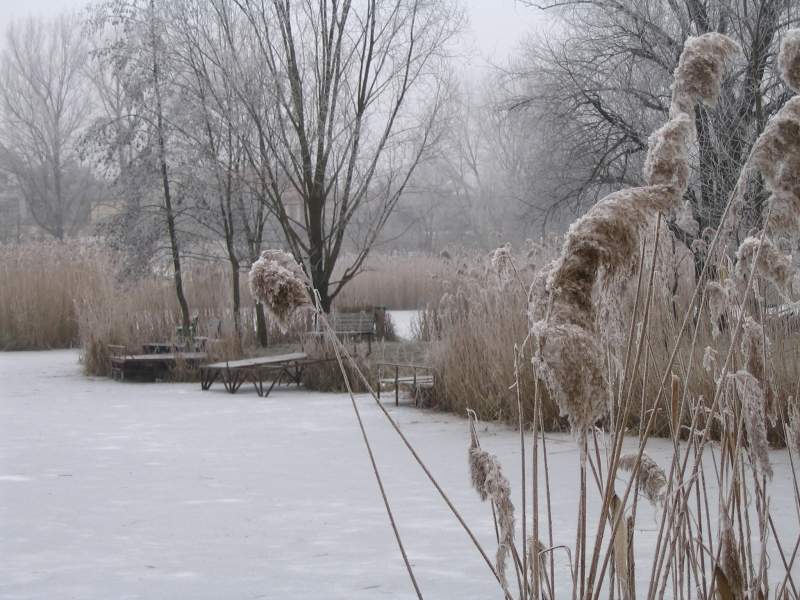Press Release
Wetlands Day -- Water plants help Danube meet EU law
(February 2, 2006. International Wetlands Day. Vienna, Austria)
A new project was launched today to better use natural Danube water plants for reducing water pollution. Danube countries need to reduce water pollution to meet EU water protection legislation, known as the Water Framework Directive, by 2015. This includes non-EU countries sharing the Danube River Basin that voluntarily agreed to meet EU water law.
Danube countries are now making plans to ensure that waters within their national boundaries are clean and protected by 2015. The new project, funded by the UNDP-GEF Danube Regional Project (DRP), will encourage national water managers to use water plants to help reduce pollution and to include such actions in their national plans to clean Danube waters. Outputs from the project will include guidelines and case studies where water plants have significantly improved water quality.
 The water plants are located in 'wetlands' -- places where water and land naturally cooperate to protect water, animals, plants and humans. Besides absorbing pollution, wetlands provide numerous other valuable services including helping to reduce the impacts from floods and providing homes for important fish and plant species.
The water plants are located in 'wetlands' -- places where water and land naturally cooperate to protect water, animals, plants and humans. Besides absorbing pollution, wetlands provide numerous other valuable services including helping to reduce the impacts from floods and providing homes for important fish and plant species.
"The DRP encourages Danube countries to value wetlands more in their efforts to meet EU law," says DRP Expert Peter Whalley. "We also hope Danube wetlands will be better protected in the future."
Some 80% of Danube wetlands and floodplains have been lost due to past human activities, from river channelling to making room for farmland. "Danube floodplains are among the most important remaining floodplains in Europe," says Tobias Salathe from the Ramsar Convention on Wetlands.
The DRP is also supporting a local campaign in Vojvodina, Serbia and Montenegro. Its goal is to protect the Zasavica Special Nature Reserve and its wetlands from illegal garbage dumping, tree cutting and hunting. The Zasavica campaign was launched today on International Wetlands Day as part of the larger International Wetlands Campaign by the Danube Environmental Forum (DEF). DEF is the largest network of Danube environmental NGOs in the Danube River Basin. The DEF campaign will encourage national water managers to adequately incorporate wetland protection into their national plans.
The DRP also continues to fund a project implemented by the WWF Danube-Carpathian Programme to prepare new policies for wetlands rehabilitation and protection. This includes local pilot projects in Croatia, Romania and Slovakia.
Notes to Editors:
What is World Wetlands Day? February 2 each year marks the date of the signing of the Ramsar International Convention on Wetlands in 1971. Since then, each year, government agencies, non-governmental organizations and groups of citizens at all levels have taken advantage of the opportunity to undertake actions aimed at raising public awareness of wetland values and benefits and the Ramsar Convention.
For more information about…
UNDP-GEF Danube Regional Project: Contact Paul Csagoly,
paul.csagoly@unvienna.org,
(tel) +43 1 26060 4722, (mob) +43 664 561 2192,
www.undp-drp.org
Zasavica Campaign: Contact Slobodan Mitrovice, Pokret Gorana Sremske Mitrovice,
(tel) +381 22 214 300, (mob) +381 63 514 847, zasavica@zasavica.org.yu,
www.zasavica.org.yu
DEF International Wetlands Campaign: DEF Secretariat, Monika Chrenkova,
(tel) +421 2 654 56 113, def@changenet.sk,
www.de-forum.org
To learn more about DRP activities related to wetlands
Development of wetlands and land-use policies
Monitoring and assessment of nutrient removal capacities of wetlands






